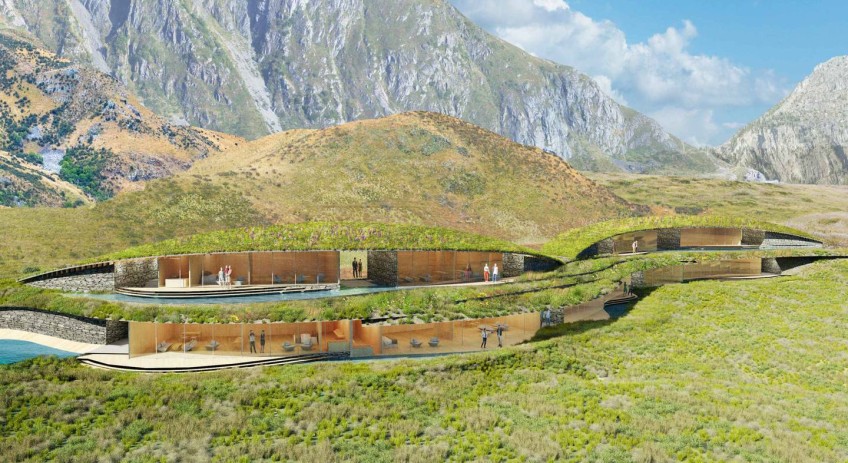QLDC ordered to pay hefty court costs in relation to Damper Bay lodge legal stoush

Queenstown Lakes District Council will have to pay $44,199 in court costs, in relation to a legal stoush surrounding a US billionaire's to build a luxury lodge near Wānaka.
In a statement today, Queenstown lakes District Council confirmed the Environment Court made a decision to award costs of $44,199 against QLDC.
“This equates to approximately 30% of the costs sought by one of the parties involved in the appeal."
It relates to a legal case brought by Second Star Limited, a company associated with US billionaire and businessman Peter Thiel. It was an appeal against QLDC’s decision to refuse resource consent for a proposed luxury lodge at Damper Bay near Wānaka.
Second Star Ltd., had applied to build visitor accommodation for up to 30 guests on a 193-hectare lot on Wānaka’s outskirts, at Damper Bay.
The presented designs were drawn up by Kengo Kuma and Associates, the same company that designed Tokyo’s Olympic Stadium, the QLDC declined the application based on the location and the size of the buildings and their visibility from the Glendhu Bay walking track.
The proposed complex would be situated in an Outstanding Natural Landscape area – where limited development is allowed under the District Plan.
Following the Environment Court decision QLDC said “in this case the Court made a fresh decision on the development, as is usual, based on its own assessment of the proposal, which was amended during an appeal process to address concerns raised in the original Council decision”.
The appeal was opposed by an entity (LET) founded by John May, another businessman and developer who owns neighbouring land. QLDC was the first respondent and LET joined the proceedings in opposition to the lodge.
In the final appeal decision, the Environment Court also refused the resource consent for the lodge.
“The Court criticised QLDC’s assessment that the proposal was more appropriate and potentially consentable after the appellant changes,” QLDC’s statement says.
“The court considered QLDC did not have strong enough evidence to justify that conclusion and that it expected QLDC to defend its original decision to refuse resource consent.
“As it was a case where two well-resourced neighbours, and other parties, were contesting a development proposal, QLDC adopted a pragmatic approach to a legal case in which it was required to participate.
“At the end of the case, QLDC concluded its closing submissions to the Court with the following statement: “…Council neither supports nor opposes the granting of consent but is satisfied that the Proposal may be granted consent if the Court considers so, as long as it gives regard to the ‘The council’s decision and provides reasons for its decision, and as long as appropriate conditions are imposed to manage effects, and that they are reasonable and enforceable.’
“Whilst QLDC took a measured approach to these legal proceedings, including how much ratepayers’ money it spent on the case, it has noted the Court’s view that it should have defended its original decision and its District Plan more strongly.”
Longview Environmental Trust welcomed the Environment Court’s costs decision as vindication of the concerns it raised about the council’s behaviour in this case.
"The council has invested heavily in the development of the District Plan, especially in relation to protecting the District’s outstanding natural landscapes. Yet at the first opportunity to apply the new Plan, the council completely failed to do so," Trustee John May said in a statement.
"This case exposes the inappropriateness of the Council doing backroom deals with influential developers leaving other parties to do the Council’s job. LET has no issue with the council reaching principled settlements based on good evidence, but this case was not of that kind. As the Court found, there was no justification for the council’s staff to turn their backs on the commissioners’ decision on behalf of the council. When that happens, it raises concerns about the integrity of the council’s decision making.
"LET welcomes the decision as a timely reminder of the council’s duty to the public."
Main image: The proposed luxury lodge at Damper Bay.

























